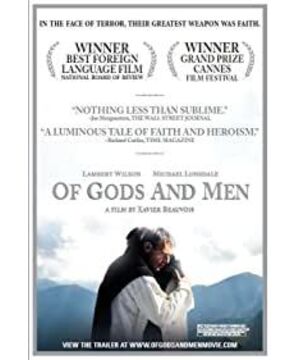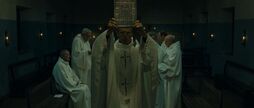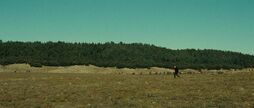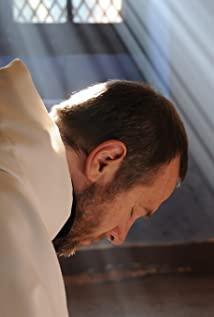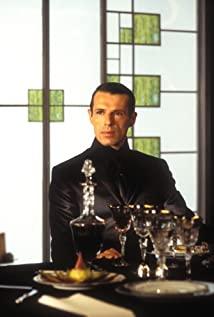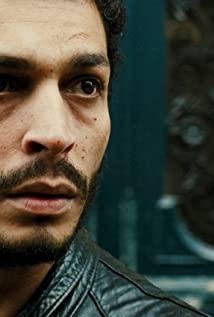Frankly speaking, it is difficult for viewers who grew up in a country lacking religious feelings to understand the theory of martyrdom expounded by [Man and God], and the film tells about seven French Cistercian monks who preached in Algeria. The story of armed riots, adherence to beliefs, and shared hardships with the local residents, and was eventually taken hostage by the rioters, and collectively killed (two people survived) is a difficult proposition in any humanistic context. Originally, the motif of the story was full of evangelistic colors, and it would fall into the pit of religious propaganda if you were not careful, but the director eventually avoided all curious perspectives and techniques, and did not talk about ostentation at all, but created a great appeal.
As a religious film, [Man and God] maintained the restraint that a serious work deserves. It doesn't rush to the theme at all, but slowly brews the theme before the wrestling of walk and stay, letter and separation begins. The priests’ routine spiritual life came on the scene, ringing bells, burning candles, changing clothes, sweeping, planting vegetables, chopping wood, reading, meditation, singing songs, praying, writing letters on behalf of others, treating illnesses and saving people... occasionally they also wore casual clothes. Participating in the festival ceremonies of local farmers, the scene of local Islamic residents and foreign Christians living in harmony, reminds people of the seaside wedding in [Eternal and One Day], which is filled with the brilliance of life. In the trivial day after day, the faith of the priests is growing. There is another scene in just a few seconds, but it explains the power of faith from the side-the old priest sells the honey brewed by the monastery at the market, and by the way, he works as a psychologist for a local girl, and the old and the young discuss what love is, the old man His eyes flashed and said: "I have met a greater love, it has been more than 60 years." Respecting love as a god is not clever. It is true that you love faith as love, and you can manage a cycle of reincarnation. Perseverance. Based on this belief, we probably already know where the seven priests will go when the riot hits.
In the process of faithfully implementing the standard process of feature films, [Man and God] provided the necessary drama conflicts. In the 20th minute, the news that a young girl had been killed lifted the veil of an armed rebellion for the first time. Two minutes later, the mob made a collective appearance and went to a construction site to cut all the foreign workers' throats. Then a priest witnessed armed conflict in the news when he went to the town’s printing press to copy things...Dangerous step by step approached the monastery, constantly testing the patience of the priests. During this period of time, the director continued to use the rigorous interior composition and the characters to always maintain the Central Classical picture, restricting the strong dramatic turning of the situation to collapse. The absolute solemnity and transition inside and outside the high walls of the monastery also divided the narrative scene into two distinct worlds, waiting for the first frontal "fight" between the two sides. This side was deliberately arranged on Christmas Eve, the most important Christian holiday. On the evening of the most important Christian holiday, armed militants broke into the monastery, prepared to hijack doctors and demand food and medicine. They were all politely rejected by Bishop Christian, and endless troubles followed. So lay the groundwork for this.
But the above two points are still not the most commendable aspect of this film. Putting aside all the added value of technology, to say that a movie is good, first of all depends on whether it has created a good character on the basis of telling a good story. [Man and God] undoubtedly did it, and remained calm. Just like heroes who blindly pursue high-level completeness are no longer popular, negative characters with full human nature can withstand the washing of time. Similarly, the cleverness of the script lies in the depiction of the seven missionaries, not because they are gods. Servant, let go of its bright side. But from the perspective of people, it examines their various humanized reactions in the face of crisis, so as to arouse the resonance of the audience. That’s why the priests had three solemn discussions on the issue of whether to leave or stay: "Why should we be martyrs? For God? To be a hero? To prove that we are great?" and "We are martyrs." , The task here is to be the brother of everyone" the confrontation, understanding and fusion of the two voices. In the end, the seven people coordinated their internal conflicts and decided to let God arrange everything.
The film uses an extremely poetic ending to call the curtain for the seven missionaries. It uses the mournful soundtrack of "Swan Lake" to accompany their last supper, presses the muzzle against them and walks into the depths of the snowy field, gradually moving back into the snow. The long mirror came to pay tribute to it. It is completely out of the scope of the discussion about who they died by the hand, when they fell, and how they fell. The important thing is that they complied with the call of their hearts, gave their last breath to their distressed brothers and sisters, and dedicated themselves to God. This is a kind of honor for believers with faith in their hearts. At this moment, humans and gods finally blur the boundaries, and are in harmony with the light.
View more about Of Gods and Men reviews


